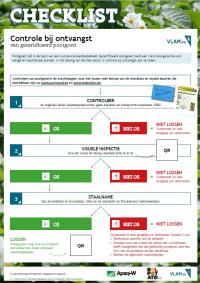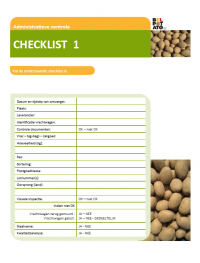You are here
Seed potatoes
The control procedure begins with the obligatory classification of the fields. The quality inspectors pay particular attention to:
- background history and situation of the field
- field should be free of harmful organisms (incl. eels)
- distance between individual fields
- no potato-growing for three years prior to inspection
- quantity of basic seed used
- variety
- class
- origin
- batch number
A minimum two inspections are conducted once the crop begins to show. The inspectors pay particular attention to the:
- varietal purity of the crop
- health of the young plants
The Department of Agriculture and Fisheries decides the latest date for defoliation so as to limit the risk of a spread of viral disease. It does this on the basis of:
- the data gathered during tracking and counts of plant louse swarms*
- the seed variety
- specific local conditions, such as degree of ripening and infection problems
* plant lice (aphids) are vectors of viruses that can seriously impair the quality of the seed.
The Department of Agriculture and Fisheries always conducts on-site checks to ensure that defoliation actually occurs as per schedule.
Every field that fails to meet the requirements is condemned by the Department of Agriculture and Fisheries as unfit for production. There are no exceptions.

